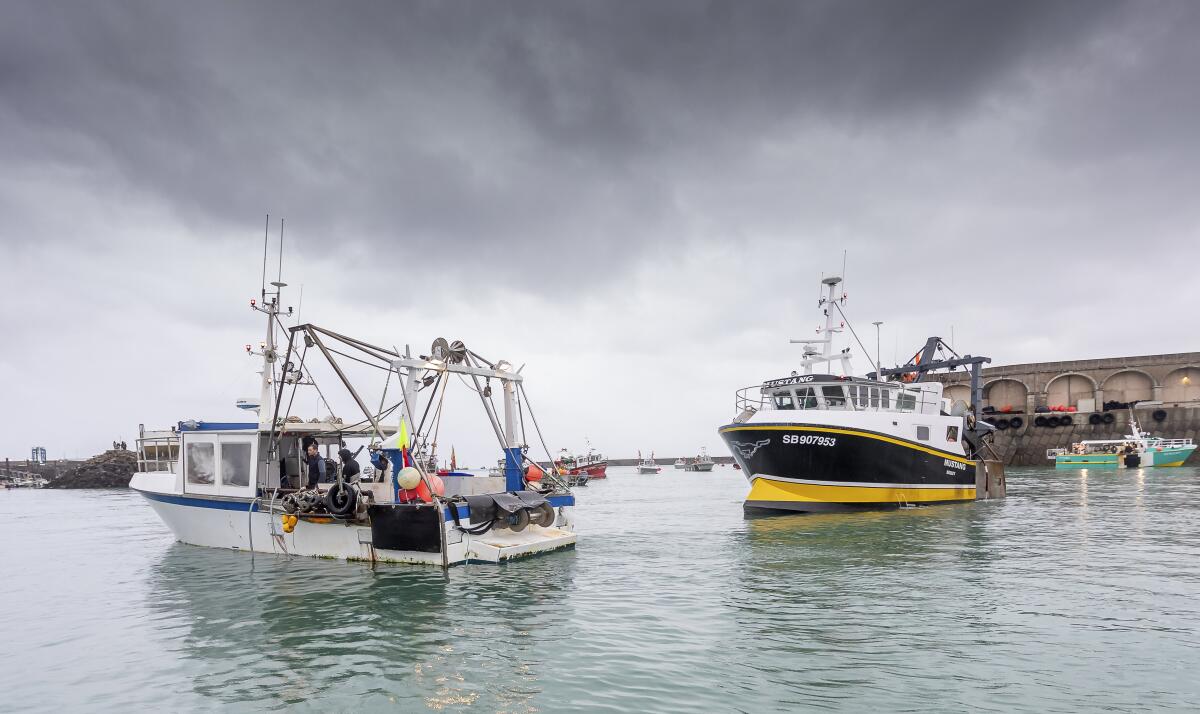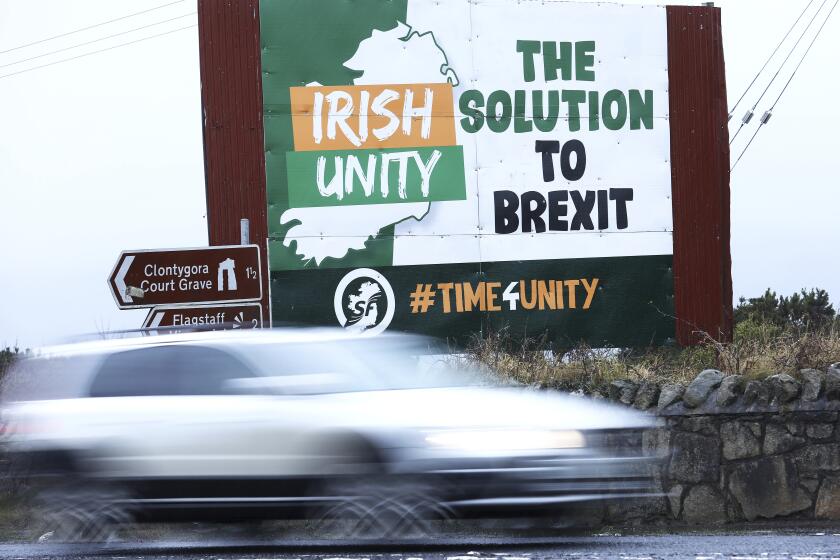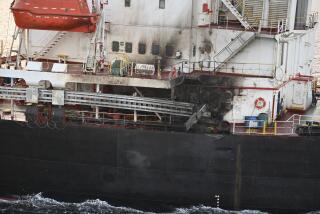Go fish: Britain and France dispatch patrol boats as tensions mount over fishing rights

LONDON — The atmospherics may be redolent of a nautical-themed Gilbert and Sullivan operetta, but competing British and French maritime patrols in the English Channel illustrate the very real frictions stemming from Brexit, the U.K.’s messy departure from the European Union.
No one thinks the countries’ confrontation over fishing rights is going to escalate into a shootout between the two French patrol boats and the two Royal Navy vessels dispatched to the island of Jersey — “We are not ready for war,” a European lawmaker told the BBC. But livelihoods and long-held seafaring traditions are at stake in the dispute, which comes after a punishing pandemic year.
The drama on the not-so-high seas, off the coast of France’s Normandy region, is the first major clash over fisheries since Brexit took full effect Jan. 1. This week, French fishing boats entered the waters off Jersey, the largest of the Channel Islands archipelago, to protest, in essence, the same type of bureaucratic measures that Brexit backers in the U.K. say Europe inflicted on Britain.
Under the new rules, French vessels must document their fishing history in the area if they want to obtain a license to continue netting catches there. Although Jersey lies only 14 miles off the French coast and 85 miles off England’s, the island is a “dependency” of the British crown.
According to the French side, the new licensing procedures carry burdensome restrictions that could wipe out struggling fishers, especially smaller ones.
The swell of discord appeared to crest Thursday when about 60 French fishing vessels gathered off St. Helier, Jersey’s main port, with some setting off flares and flashing lights in a show of discontent over the new rules.
The post-Brexit trade deal between the U.K. and the EU wards off a chaotic rupture, but British officials warn of a bumpy ride ahead.
France also dispatched two policing boats, Athos and Themis — named, respectively, for a character in Alexandre Dumas’ “The Three Musketeers” and a Greek goddess of divine law — to monitor the situation and ensure safety, the French government said. The boats arrived a day after Britain sent the Royal Navy’s HMS Severn and HMS Tamar to the waters off Jersey.
In another provocative move, France’s minister for maritime affairs, Annick Girardin, suggested Tuesday that Jersey’s power supply could be curtailed if the spat wasn’t resolved. The Channel Islands get their electricity from France via undersea cables, and Girardin’s shot across the bow angered islanders, as well as some in British Prime Minister Boris Johnson’s government.
Fishing rights have been among the most bitterly contested issues surrounding Brexit, some of which are still being haggled over nearly five years after a narrow majority of Britons voted to withdraw the U.K. from the now 27-member bloc. With other complex trade questions still in play, such a standoff is an ominous sign.
Hoping to calm the waters, Jersey officials held talks Thursday with representatives for French fisheries. The island’s government issued a statement saying diplomatic efforts would continue, and Britain said late Thursday its two ships were getting ready to leave the area.
The pandemic’s toll and anger over Brexit in Scotland and Northern Ireland are fueling warnings that the United Kingdom could be headed for a breakup.
Although the dispute is of serious moment to fishers around Jersey and officials in London and Paris, the episode has echoes of the fanciful dispatches that Johnson, in his days as a newspaper correspondent, filed from Brussels, where the EU is headquartered. In the early 1990s, he made a name for himself — and infuriated more serious-minded rivals — when he fanned Euroskeptic sentiment in Britain by ridiculing the bloc’s arcane rules, sometimes stretching the truth to do so.
Some observers suggest that the often theatrical prime minister might be exploiting this latest dispute, which was splashed across newspaper front pages, to influence voters who went to the polls Thursday in local and regional elections in England, Scotland and Wales.
Jersey-based British fishermen, though, welcomed the show of British naval strength. One, John Dearing, told Britain’s Press Assn. that the French flotilla’s protest off St. Helier was “like an invasion.”
The dispute has not reached that level, though Britain and France certainly have centuries of armed territorial conflict to their names.
“We are not ready for war,” Stephanie Yon-Courtin, a French member of the European Parliament’s fisheries committee, told the BBC. But she added that, if things escalated, “all retaliatory measures will be explored.”
King reported from Washington and Chu from London.
More to Read
Sign up for Essential California
The most important California stories and recommendations in your inbox every morning.
You may occasionally receive promotional content from the Los Angeles Times.













